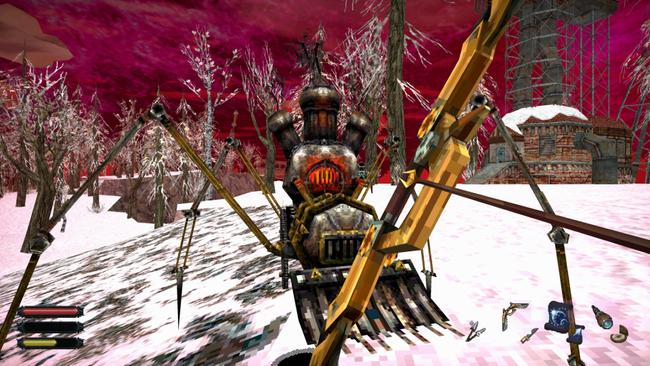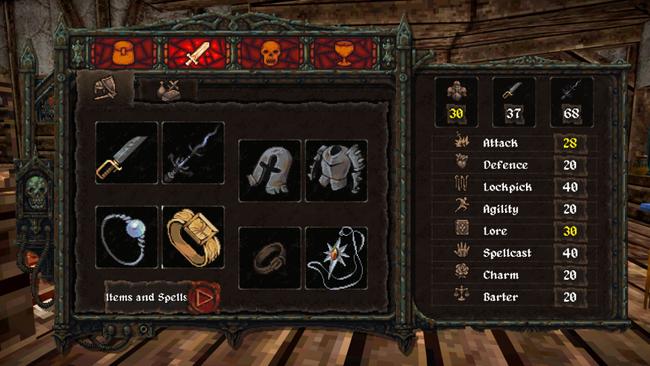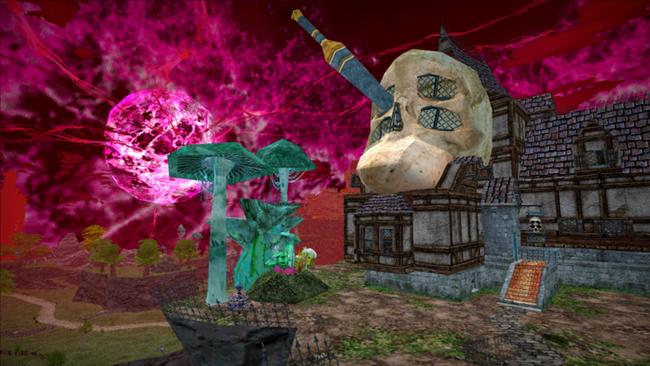
Dread Delusion Review
I fell in love with Dread Delusion when I came across the journal of an explorer, detailing his trek to the Underlands. It would be easy to cast Lovely Hellplace's writing as sardonic, but the heart of Dread Delusion's world is that of hope, even when it might seem hopeless; even if those hopes might be indistinquishable from delusions.
To put things as simply as possible; Dread Delusion is an open-world RPG, wearing its inspirations - games like Morrowind and King's Field - proudly on its sleeve, while also still maintaining its own identity. There's an otherworldly aura to the floating isles and the kingdoms that inhabit them, as players explore the fringes of a society still struggling to come to grips with a world that has long since ended. Whether it's the Wikkans and their traditional worship of the gods being called upon by those who have forgotten the consequences, or the Union's frenzied actions to stamp such practices out that begs the question if the cure might just have been worse than the disease - not to mention the challenges facing the realm of the Endless, or the slow and undeniable decline of the Clockwork Kingdom.

While not every quest has wide-ranging implications for the world or the games plot, where Lovely Hellplace has undeniably succeeded has been with crafting an interesting world, with fascinating lore - and designing quests that are bound to leave you more invested in the world's fate than before you'd started. Early on you're faced with the dilemma of a village which makes its dues in the trade of Scryshrooms - special mushrooms that when its spores are brewed into a tea, can offer a glimpse of insight into the future. Yet, this crop was once watered by the blood of human sacrifices - a penance enacted by the former god that allowed the town to flourish. In the absence of such practices, the town is doomed; and so in the shadows certain townsfolks have plotted to revive the dark deeds. Is it right to stop someone from sacrificing themselves for the town's continued existence, even if the practice was ended for a reason, and might just lead to continued suffering?
This is just the most basic of conundrums, and yet the quests continued to engage me more and more the further into the game I progressed; in the Endless Realm, the kingdom of undying corpses that still walk the earth thanks to a spell that was weaved even before the advent of the World Rend, many wait for an end that can never come; where even once a body has been thoroughly destroyed, their consciousness remains. Taken to its logical extreme, a dragon which has spent many centuries devouring scores of Endless has in turn been possessed by the hivemind of the consciousnesses that it has embraced. In the Clockwork Kingdom citizens are haunted by the feeling that there are things that they've forgotten, while behind the scenes a malfunctioning mechanical god has continued to condemn its subjects to a void, sealing off the memories of those who might have once existed.

While Dread Delusion's world might seem overly basic at first glance, the more time you spend engaging with its world the harder it is to walk away with anything less than an appreciation of the work that's been done to paint such a vivid picture of the islands, and an understanding of the various factions - and why they might believe that their actions are the only chance at redeeming a world in decline. Illuminated by the light of stars locked in a pattern not unlike the neurons of a brain, Dread Delusion's greatest accomplishment is connecting these various threads together in the end, while still leaving room for players to imagine what else might be out there in this universe to explore.
Aesthetically, Dread Delusion evokes memories of RPGs from the past with its low poly look - though with a draw distance that would make consoles of the past blush. Once you've reached the climax of the story, players can pilot an airship of their own to reach the isles that you couldn't already reach on foot, and allows you the opportunity to more easily tie up any remaining threads before concluding the narrative; accompanying the adventure is a wonderfully lo-fi soundtrack, which perfectly sets the tone for this isolated pocket of civilization.

There are faults, however. While both side quests and the main narrative are excellent, and offer a wonderful mix of emotions running the whole gamut - combat is perhaps painfully basic, with it never meaningfully evolving from what is taught during the tutorial. While some quests offer multiple outcomes and consider your actions, there are moments where you would expect the game to acknowledge your actions where it simply doesn't; while it didn't completely take me out of the experience, some quests unravel themselves when the context of other quests and the world are considered. This isn't nearly as much of a problem with the Clockwork Kingdom, where quests tie together and build upon each other, but with the earlier zones these little cracks are noticeable.
Itemization, similarly to combat itself, is fairly basic. Alchemy can be interesting in how it allows you to craft items, but until the very end of the game upgrading equipment is purely a linear affair. To make matters worse, different classes of weapons are few and far between. While you can get a basic sword, a dagger, and a greatsword - only the basic sword is readily available from the start, and so by the time you might find these other weapons to engage with, there's a chance that you've already put far too many resources into your basic weapon. This isn't a major issue, especially since you don't actually gain experience - Delusions - through combat, but it's still a shame that it what's there feels a bit lacking for those who want to engage with it. On the flipside, you can charm your way out of any enemy encounters if you wish via the use of spells, so if you want to avoid bloodshed entirely - that's a valid gameplay style, too.

Finally - the game is plagued with a number of bugs, especially in the late game. Admittedly these are being patched relatively quickly, but in the first few days following the 1.0 launch level geometry has failed to spawn, preventing the completion of vital sidequests, Truth Potions were completely unusable, and certain lifts for proceeding the main story have been almost completely blocked by misplaced assets. Controlling your airship once unlocked is especially finnicky; the camera has an absurdly low sensitivity, completely independent of your settings for on-foot. These will likely be fixed in due time, though it's hard to say exactly how long that might take. It's just such a shame that many of these bugs are present right at the finish line, diminishing what is absolutely a strong conclusion for what is already one of the best RPGs I've played this year.
Dread Delusion succeeds where it counts, even if bits and pieces still have some polishing left to do. For a crowded year for RPGs, Dread Delusion can still stand out from the crowd.